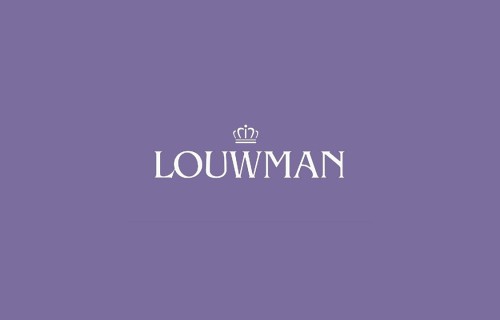Consultancy
The tax automation area is large, and improvements can be enormous. So, where should you start? The automation of various tax processes holds no secrets for our senior consultants. We have automated a broad range of tax processes and our consultants have in-house experience in tax departments.
A few of the current topics where tax automation can significantly improve the quality of your processes:
ETR Reporting
The ETR (effective tax rate) is a key metric in today’s tax world. It is widely used as a driver of tax decisions, a measure of tax departments’ performance, and a comparable for many companies. The ETR reconciliation is also a crucial part of the mandatory disclosures. All the more reason that the calculation of this ratio should be spot-on.
Our experts know how to help you determine the correct ETR and the right process to monitor this KPI. Together with you, we determine which choices make the process more efficient, which software could act as an enabler, and support you in implementing these choices. Our tax specialists combine extensive experience within Big4 consultancies with practical experience as in-house tax specialists and knowledge of reporting and tax solutions, such as Anaplan, CCH Tagetik, Excel, HFM, Longview, OneSource, SAP, and Vena.
Optimizing the tax processes requires connecting tax, finance, and IT. After selecting the right software, we guide you through the implementation process and ensure that your specific needs are correctly reflected in the result. Once the system is operational, a large data flow starts. To manage this effectively, we support and train your people.
Tax Disclosures
Figures do not always tell the whole story. Drafting a good explanation for the figures is an essential part of the financial report. However, this requires a lot of insight and a thorough analysis of the underlying information. It is often a time-consuming process to get the relevant information from various departments within the organization. Proper preparation prevents you from encountering surprises during the year-end!
Knowing beforehand what you need to disclose and what you additionally want to tell the public will be the first step towards a smoother disclosure process. Secondly, automating large portions of the tax disclosures can save you a lot of time during this stressful process.
Our experts help you design the correct disclosure and a smooth process to prepare these disclosures, enabling you to comply with tax and accounting regulations such as IFRS, US GAAP, and Local GAAP.
Tax Provisioning
The process of tax provisioning causes peaks in each reporting period. The internal process of retrieving and evaluating all relevant data for the tax closing process makes this workload even heavier; reason enough to take a critical look at whether smart solutions can make the entire tax provisioning process more effective.
Our specialists have that critical eye. Together with you, we determine how reporting and tax solutions can optimize the tax provision process. This approach will give you several benefits:
- Spend less time on the endless reconciliation of tax reports to their source data.
- An intelligent model can help you prevent and catch any mistakes in the tax calculations.
- Reuse the data for the purposes of tax risk management and tax opportunities.
- Create and increase tax awareness within the entire organization.
Country-by-Country reporting
The CbCR obligation entails various reporting requirements. These requirements often require different data and almost always additional reporting processes. For the setting up and maintenance of a CbCR process, a well-founded approach is therefore essential. Our experienced tax specialists have developed a practical plan of action in collaboration with IT specialists. This plan of action is based on CbCR documentation that has been tested in practice, such as models, instructions, and procedures. This way, you can quickly fulfill this obligation.
We have our tooling available to convert your CbCR obligation into a reportable XML file and can file with the tax authorities on your behalf. This tooling can be run standalone by our team or integrated into your own financial or tax system.
Other tax automation
A lot of tax processes can be optimized through the use of technology. Next to the processes mentioned above, we can support you in all other tax automation aspects. We have knowledge of and access to the right tax automation consultants in for example VAT and Transfer Pricing processes
We can connect you to the right international VAT managers with extensive knowledge of VAT, ERP, and related systems. They help configure, optimize, improve, and implement VAT automation solutions. Looking into VAT automation processes like, for example, VAT reconciliations and VAT coding. They can act as a link between the Tax, Finance, and IT departments within an organization. Once the solutions in question have been implemented, we can also train and provide training material to staff.
We support you in the implementation of your TP automation project and can help you to implement the new TP policy or strategy into your financial systems. We also connect you to the right transfer pricing professional for TP change projects or for a yearly review of benchmarks and updates to TP documentation, such as Master and Local files.
From sounding board to practical support
We can guide you with the challenges you encounter, whether it is practical support on the implementation of a new solution or the review of existing processes and templates.
If you are driving the tax automation within the company, you can use our consultants as a sounding board. Our consultants can help with the blueprint of tax automation templates or can be added to your team to support changes to existing tooling or tax automation landscape.
Related Cases & News

Automated tax reporting with Board Tax Template at Louwman
Louwman Group, one of the largest automotive companies in Europe, is innovative and ambitious. The family business wants to be able to adequately respond to the rapidly changing trends in the mobility world with new revenue models. The implementation of Board supports this ambition with improved processes for integrated planning, consolidation, and tax reporting.

Webinar: Uncertain Tax Positions (IFRIC23) & Longview Tax
Tax provisioning is a highly complex area that is in both the tax and the accounting domain. Within many Finance departments tax is often conceived as slowing down the close cycle as a whole. The new rules on uncertain tax provisions (IFRIC 23) can add to the complexity. In our webinar we have shown how these changes might affect your tax position.
